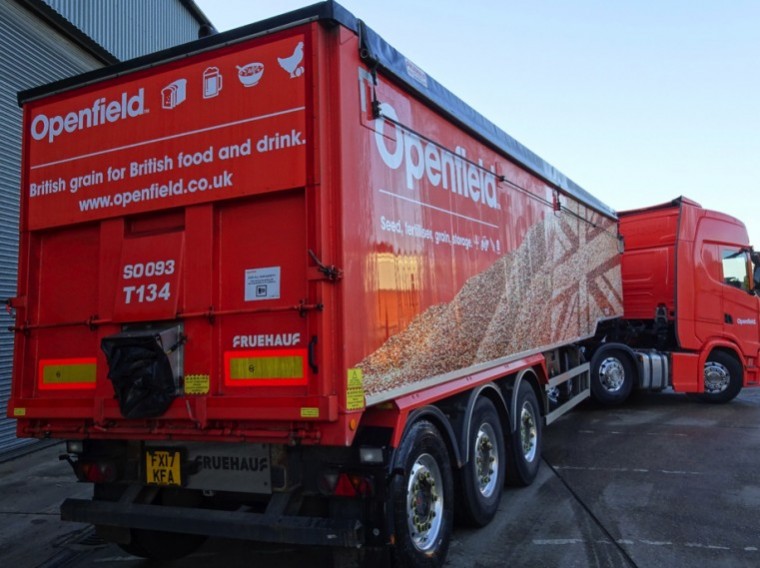The farmer-owned grain marketing and inputs co-operative has reported profits before tax of £0.4m for the year to 30 June 2018 (2017: Loss £3.3m), which is a significant £3.7m turnaround. The greatly improved performance follows a year of transition as Openfield simplified its business, removed duplicate activities and focussed on delivering improved service and value to both its members and the British food and drink industry customers it’s proud to supply.
The core financial strength of Openfield remained strong with net assets increasing to £24.2m (2017: £23.7m), with no core borrowings and a surplus working capital of £5.5m (2017: £5.7m).
Harvest 2017 saw a small crop which resulted in a reduced volume of grain being offered for export. As a result, turnover from activities, despite domestic volume growth with their key consumers, reduced marginally to £628m.
In addition to a small crop size, the UK grain industry also experienced haulage challenges, following the failure of milling wheat crops in the south. This resulted in the need for longer journeys and a significantly increased demand for haulage across the sector, which resulted in a capacity shortfall and increased costs.
Commenting on this performance, Openfield’s chairman Philip Moody said: “I’m very pleased to see Openfield has returned to profitability. We have worked hard to streamline and improve both our member proposition and our financial performance. This has resulted in our farmer owned organisation being fit for the future, ready to respond to new opportunities and to deliver further success.”
Openfield’s strategy is to work with their members to supply some of the best-known British food and drink brands aligned to excellent service through an integrated and innovative supply chain.
Openfield performance to June 2018:
- Total members grew to 4152, up 6% from 3926 in 2017;
- Pre-tax profit of £0.4m compared with a loss of £3.3m in 2017;
- Group revenue down 0.4% to £628m;
- Grain volumes increased by 1.4% for our top 20 domestic consumers.




